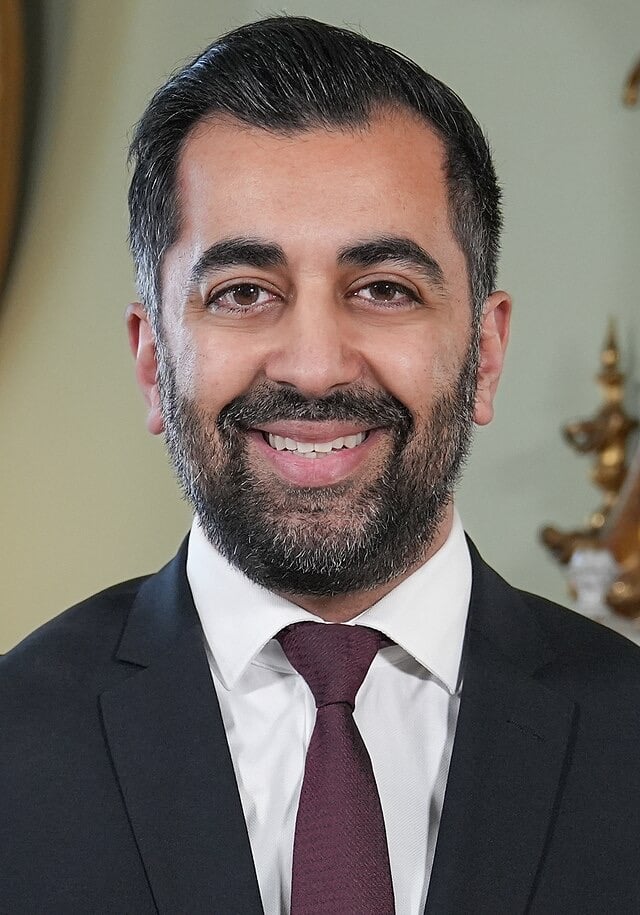Former First Minister Humza Yousaf has warned that Scotland is “becoming more intolerant” as toxic debates around immigration and multiculturalism take root north of the border, challenging the nation’s self-image as a welcoming society.
Speaking on BBC Radio 4’s documentary ‘Scotland Wants You’, Mr Yousaf said politicians had failed to engage properly with genuine immigration concerns, instead hiding behind “soundbites” like the traditional Scottish phrase “we’re all Jock Tamson’s bairns” to mask real anxieties about migration.
The former SNP leader, who was Scotland’s first Muslim and Asian First Minister before resigning in May 2024, questioned whether the beloved Scottish expression – meaning all people are equal and welcome – had become a convenient way to avoid difficult conversations about immigration.
We use these soundbites to perhaps mask the fact that people have genuine concerns about immigration,” Mr Yousaf told the programme, though he characterised these as “misplaced concerns” that still required proper engagement from politicians.
His comments come as new research from think tank Migration Policy Scotland reveals Scottish attitudes towards immigration are “cooling,” with more people wanting to see immigration levels reduced than in previous years.
“I have to say, in recent months and over the past couple of years, it is a feeling that the toxicity of the debate around immigration and multiculturalism has managed to find its way up here,” Mr Yousaf said.
He added: “Scotland I’m afraid, of course, is becoming more intolerant – both in the public space and frankly I’ve seen some of that intolerance in the political space too.”
The phrase “we’re all Jock Tamson’s bairns” has appeared on placards at counter-protests outside hotels housing asylum seekers in recent weeks, as tensions over immigration policy have intensified across Scotland.
Mr Yousaf acknowledged using the expression himself on several occasions but suggested it provided “a very nice soundbite” that could prevent meaningful discussion of immigration concerns.
Sarah Kyambi from Migration Policy Scotland, who has overseen research on Scottish attitudes for three years, confirmed the shift in public opinion.
Scottish attitudes to immigration are cooling,” Ms Kyambi told the BBC documentary. “More people want to see the level of immigration reduced than they did last year or the year before.”
She noted this cooling came from a starting point where the largest group in their survey had initially wanted to see immigration increase.
The documentary also featured Reform UK’s Richard Tice, who claimed the public are “questioning what they’ve been told by politicians” on immigration, reflecting growing scepticism about political messaging on the issue.
Mr Yousaf’s warnings represent a significant moment of reflection for Scotland, which has long prided itself on being more welcoming to migrants than other parts of the UK.
The Glasgow-born politician, whose paternal grandparents emigrated from Pakistan in the 1960s, served as First Minister for just over a year until his resignation in May 2024 following the collapse of his coalition government.
During his tenure, he was a fierce critic of UK Conservative immigration policies, branding the Rwanda deportation scheme “morally repugnant” and positioning Scotland as a more progressive alternative.
Protests against illegal immigration have taken place outside hotels housing asylum seekers in Scotland in recent weeks, marking a shift in public discourse that Mr Yousaf suggests reflects broader UK debates spreading northward.
The traditional Scottish phrase “Jock Tamson’s bairns” derives from Scots dialect and represents egalitarian sentiments equivalent to “we’re all the same under the skin” or “we are all God’s children.”
According to the Dictionary of the Scots Language, the phrase refers to “the human race, common humanity” or “a group of people united by a common sentiment, interest or purpose.”
The expression has deep cultural roots in Scotland, appearing in parliamentary speeches, literature, and folk music as a symbol of Scottish values of equality and welcome.
However, Morag Alexander, the Scottish Commissioner of the Equality and Human Rights Commission, has previously noted that Scots may be “less tolerant of immigrants than they appear to think that they are.
Mr Yousaf’s intervention comes at a sensitive time for Scottish politics, with the SNP struggling to maintain its traditional coalition of progressive voters whilst addressing concerns about immigration levels.
The documentary examines whether Scotland truly is more open to migrants than other parts of the UK, a central claim of Scottish political discourse that appears increasingly under strain.
Mr Yousaf resigned as First Minister on 29 April 2024 after terminating the SNP’s power-sharing agreement with the Scottish Greens, leaving him unable to command a parliamentary majority.
His brief tenure was marked by controversy over the Hate Crime and Public Order Act, which came into force in April 2024, and ongoing tensions within the independence movement.
The cooling attitudes towards immigration in Scotland mirror trends seen across Europe, where support for migration has declined amid economic pressures and political polarisation.
For Scotland’s political leaders, Mr Yousaf’s warning presents a challenge to engage with immigration concerns whilst maintaining the nation’s self-image as an inclusive society.
The shift in attitudes also poses questions for the SNP’s independence strategy, which has often contrasted Scotland’s supposed openness with what it characterises as England’s more restrictive approach.
As Scotland grapples with these changing dynamics, the comfortable certainties expressed in phrases like “we’re all Jock Tamson’s bairns” appear increasingly inadequate to address complex public concerns about immigration, integration, and national identity.
Follow for more updates on Britannia Daily
Image Credit:
Humza Yousaf (Scotland First Minister, cropped portrait) — photo by Scottish Government, licensed CC BY 2.0



